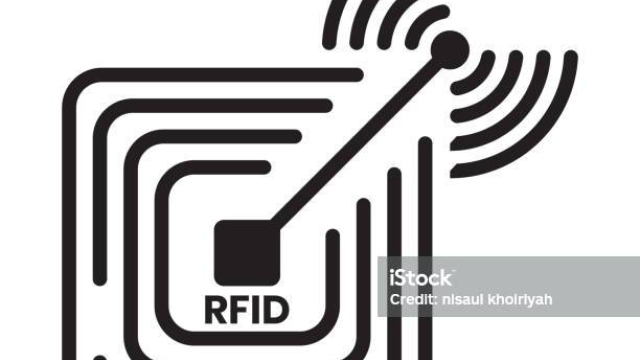RFID technology has become an integral part of our everyday lives, revolutionizing the way we interact with objects, track inventory, and streamline processes. From retail stores to hospitals to public transportation systems, this technology has proven to be a game-changer. RFID, which stands for Radio Frequency Identification, enables the wireless transfer of data from tiny tags to a reader device, allowing for seamless identification and authentication.
As we delve into the world of RFID, its potential becomes increasingly apparent. With its ability to provide real-time information and enhance efficiency, RFID has found its way into various sectors. In the retail industry, RFID tags attached to products have enabled faster checkouts, improved inventory management, and minimized losses due to theft. Additionally, in healthcare settings, RFID technology has enabled accurate identification of patients, tracking of medical supplies and equipment, and even the monitoring of temperature-sensitive medications.
By eliminating the need for physical contact between the reader and the tags, RFID has proven to be an effective solution in speeding up processes and reducing human error. As we continue to unlock the power of RFID technology, we can expect it to further revolutionize our everyday lives, bringing convenience, efficiency, and enhanced safety to various aspects of our existence.
1. Understanding RFID Technology
RFID technology, also known as Radio Frequency Identification, is a powerful tool that is revolutionizing everyday life. By utilizing radio waves to identify and track objects, RFID is streamlining processes across various industries. From supply chain management to contactless payment systems, this innovative technology is changing the way we interact with the world around us.
In its simplest form, RFID technology consists of two main components: a tag or transponder and a reader. The tag, which can be as small as a grain of rice, contains a microchip and an antenna. This tiny device is capable of storing and transmitting information wirelessly. On the other hand, the reader is responsible for sending and receiving radio signals to communicate with the tag.
The beauty of RFID lies in its ability to provide real-time data capture without the need for direct physical contact. Unlike traditional barcode scanners that require line-of-sight, RFID systems can read multiple tags simultaneously and from a distance. This makes inventory management and tracking processes much faster and more efficient. In addition, RFID technology can operate in various frequency ranges, allowing for versatility in different environments and use cases.
With RFID technology, businesses can achieve a higher level of automation and accuracy in their operations. For example, in retail, RFID-enabled systems can automatically update inventory levels, reducing the time and effort required for manual stocktaking. In healthcare, RFID tags on medical equipment and patient wristbands can enhance patient safety and streamline asset management. Additionally, RFID technology is also utilized in access control systems for buildings and parking lots, enhancing security and convenience.
As the use of RFID technology continues to grow, we can expect even more advancements and applications in the future. From improving supply chain visibility to enhancing customer experiences, the power of RFID is reshaping the way we live and work. Stay tuned as we explore the exciting possibilities that this transformative technology has to offer.
2. Applications of RFID in Everyday Life
RFID technology has rapidly gained prominence in various aspects of our daily lives, providing numerous applications that have revolutionized the way we interact with the world around us.
In retail settings, RFID tags have found widespread use in inventory management systems. These small, unobtrusive tags can be attached to products, enabling seamless tracking and monitoring throughout the supply chain. By simply scanning the RFID tags, store owners can keep real-time tabs on their inventory levels, streamline restocking processes, and reduce costs associated with manual stocktaking.
Another significant application of RFID technology can be observed in transportation systems such as tolling. With RFID-enabled electronic toll collection, drivers no longer need to stop and fumble for cash or tickets. RFID readers installed at toll booths can effortlessly detect RFID tags embedded in vehicles, facilitating automated and efficient payment processing. This advancement has not only minimized traffic congestion but also improved the overall driving experience.
Moreover, RFID technology has made its way into access control systems, providing enhanced security for buildings, campuses, and even homes. RFID-enabled keycards or fobs are used to grant authorized individuals entry into secured areas. This eliminates the need for traditional keys, which can easily be lost or duplicated. By utilizing RFID technology, organizations can ensure only authorized personnel can access restricted spaces, thereby enhancing overall safety and minimizing the risk of unauthorized entry.
The widespread adoption of RFID technology in everyday life has undeniably transformed various industries and improved efficiency across multiple sectors. From optimizing inventory management in retail to simplifying transportation systems and bolstering security in access control, the applications of RFID technology continue to reshape our day-to-day experiences for the better.
3. Advantages and Potential Impact of RFID Technology
Advantages of RFID Technology:
Enhanced Efficiency: RFID technology enables businesses to streamline their operations by automating various processes. With RFID tags and readers, items can be identified and tracked accurately and quickly. This eliminates the need for manual scanning or barcode reading, saving time and reducing errors. The improved efficiency allows organizations to optimize their supply chain management, inventory control, and asset tracking.
Increased Visibility: RFID technology provides real-time visibility into the movement and location of items. By attaching RFID tags to products, assets, or even personnel, businesses can monitor their whereabouts at any given time. This level of visibility not only helps in preventing losses or theft but also ensures better coordination and responsiveness in industries such as logistics, healthcare, and retail.
Cost Savings: RFID technology offers cost-saving benefits to businesses in several ways. Firstly, the automation and accuracy provided by RFID systems reduce labor costs associated with manual data entry or physical inventory checks. Secondly, RFID tags are durable and reusable, eliminating the need for regular replacements like traditional barcodes. Lastly, the improved inventory management and supply chain efficiency reduce stockouts, overstocking, and associated costs.
Potential Impact of RFID Technology:
radio frequency identification
Supply Chain Optimization: RFID technology has the potential to revolutionize supply chain management. By providing real-time visibility into product movement, businesses can achieve greater transparency and traceability across their supply chain. This not only enables more accurate demand forecasting and inventory planning but also allows for faster response to supply chain disruptions or quality issues.
Improved Customer Experience: RFID technology can enhance the overall customer experience. In retail, for example, RFID-enabled smart shelves can automatically track inventory levels and alert store staff when products need restocking. This ensures that customers can always find the products they need, leading to increased satisfaction and loyalty. Similarly, in industries like hospitality and healthcare, RFID technology can be used to improve service efficiency and personalize interactions with customers or patients.
Advancements in Healthcare: RFID technology holds great potential in the healthcare industry. By applying RFID tags to medical equipment, medication, or patient wristbands, healthcare providers can improve patient safety, reduce medical errors, and enhance operational efficiency. RFID-enabled systems can help automate medication management, track patient movements, and streamline the overall healthcare workflow, ultimately leading to better patient outcomes.
The advantages and potential impact of RFID technology are significant and wide-ranging. As this technology continues to evolve and become more accessible, we can expect to witness further advancements and innovations across various industries, ultimately revolutionizing everyday life.


